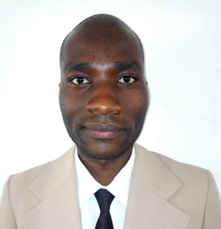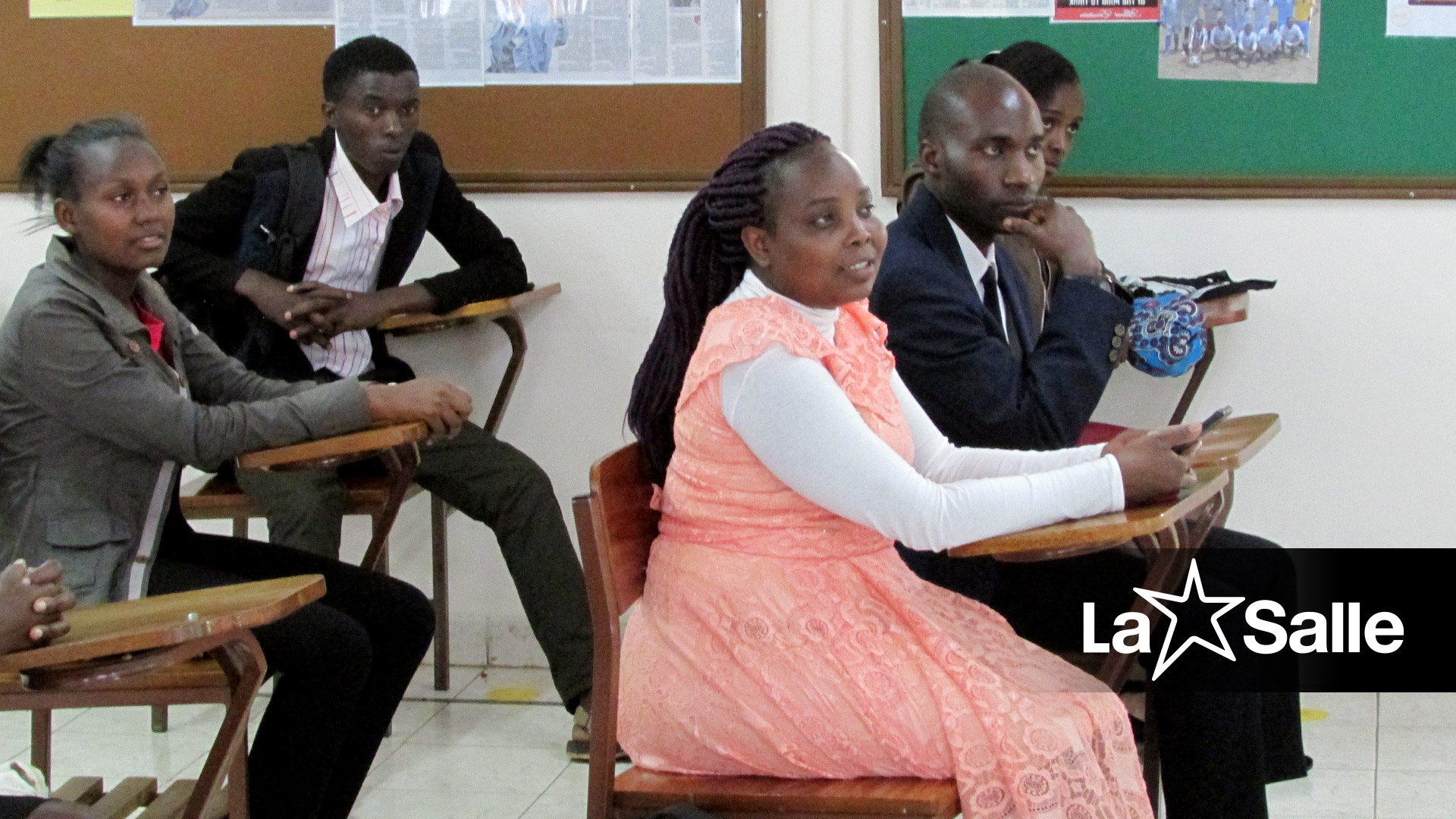“For those youths in the streets who are feeling like life is hard on them, I wish for you to know that I was just like you, hopeless and not knowing what to do. Patience is the word. You should never give up. Connect with people, keep the right company and say your daily prayers; God will open up doors just like he did to me. Your door is opening soon.”
These are the words of Kenneth, one of the 40 scholarship program beneficiaries run by Christ the Teacher Institute for Education*(CTIE), in Nairobi, Kenya. This program has provided access to tertiary education for the most underserved young people in the Kibera slum, the largest in Nairobi, and the largest urban slum in the whole of Africa.
CTIE is committed to preparing authentic educators for Africa and beyond. Thanks to the outstanding commitment of this Lasallian tertiary education and thanks to the support of Misean Cara, a new hope has been brought to students coming from the most vulnerable households. 40 young men and women received a free-of-charge tertiary education to graduate in Education.
In January 2020, everything was set up to train the next generation of teachers in Kenya. Students began their new adventure and started attending lessons with their classmates.
The spread of COVID-19 seemed to jeopardize this very new dream. The University had to move to online teaching, and not all its students could afford the necessary IT materials.
This is why the University launched the Connectivity Assistance for Resourceful Education (CARE) project, to provide its 100 neediest students with a laptop, allowing them to attend online classes and pursue their studies. This programme was made possible thanks to the support of the Lasallian Brothers in the United States and Canada (RELAN).
The Lasallian CARE program is a great example of the Lasallian mutual support and its commitment towards equitable and inclusive quality education for everyone. Everywhere. In line with the Sustainable Development Goals of the United Nations, the La Salle Network realizes multidimensional programs able to promote the advancement of global vulnerable populations, and– in this specific project – the achievement of SDG 4 and 10.
The story of Kenneth shows the extraordinary impact that education can have in one’s life and how our mutual solidarity can teach minds, touch hearts and transform lives.
Kenneth’s Story:

“My name is Kenneth Ouma Muga. I am 27 years old and a seventh born in a family of ten. I was born and raised in the largest slum in Nairobi, and the largest urban slum in Africa: Kibera. Currently, I am a 1st Year student at Christ at the Teacher Institute for Education (CTIE) pursuing a Bachelor Degree of Education in Geography and Christian Religious Education.
I enjoy supporting others in any little way I can. I love people and I love to help them.
Growing up in Kibera is never a bed of roses. Kibera is the epitome of poverty, insecurity, unemployment, poor health systems, poor roads, drug abuse among other social ills.
It is your sole responsibility as a child or youth to decide whether to live a healthy life or indulge in crime. The basic need is just a word like any other since getting a place to sleep, what to eat or what to wear is up to luck. From my childhood to date, getting food has been the biggest challenge. As we grew up, my mother used to do laundry for the rich homes in Lang’ata only to be paid 2 dollars. Can you imagine living in a 10ft by 10ft roof licking leaking shack with your family? This was us.
The stress of having to provide food for a large family in those conditions led my father toward alcoholism. My mother took over the responsibilities of being a “father” and a mother at the same time. That is why I usually say I was brought up by a “single mother” all my life.
I lost two of my firstborn siblings because of poverty. My family could not afford proper medication whenever they fall sick. How painful can it be when you realize that your son just died on your back on your way to the hospital? That is what happened to my mother when my second-born brother died. The private hospital was so expensive, hence not an option for us, and the only government hospital “available” was far. My brother (Moses) is mentally ill. He lives in the streets. We have been planning to take him to the hospital but we can’t afford it. I believe the stress he went through while young, the hardship, and poverty contributed to his depression and his current condition.
My primary education was the toughest but at the same time, the best one; food was ensured. Raising 5 dollars to pay for the final exam charges wasn’t a joke. Thank God we made it. The next hurdle was the highest to jump: secondary education.
Many times I had to drop out of school because I could not afford the tuition. Sometimes I asked Catholic Brothers, Sisters, and Church for help. I always say that finishing secondary school and getting a good score was by the grace of God. I believe I could have performed much better under different circumstances.
After secondary school, I tarmacked for over 7 years trying to look for work and education. I did manual work at construction sites and sometimes carried luggage for cash. In 2015, I volunteered at the Edmund Rice Karibu group. We went out to the street children of Kibera and took them to a field at Lang’ata for sports, mentorship, and teaching them the word of God. I enjoyed this interaction. This is where my passion for teaching started.
In the same year (2015), I heard that Christ the Teacher Institute for Education was offering a Partial scholarship to study Education. I ran to them but my time had not come yet since I was advised to pay for at least the first semester. This I could not afford. In 2019, I heard that CTIE was giving scholarships to 40 needy young men and women to study Bachelors’s Education. This time I applied and it paid off.
As a university student, my whole life has changed completely. My self-esteem has risen, self-confidence has grown, and hope built. University education is hugely shaping my next life. More opportunities are being created. Once I graduate and get a job, I believe I will be economically empowered to take my brother to the hospital, help my family as well as the Kibera fraternity.
If I meet my benefactors right now, I would lack the right words to say to them because I do not know the strongest word that I can use to express my sincere gratitude. To my benefactors, I would like you to know that your support for my university education means everything not only to me but to my family and Kibera too. You have written a whole new chapter in my life. I am so grateful and I thank you very much. From my heart to you. Keep doing what you are doing, it is turning and transforming lives in a big way.
For those youths in the streets who are feeling like life is hard on them, I wish for you to know that I was just like you, hopeless and not knowing what to do. Patience is the word. You should never give up. Connect with people, keep the right company and say your daily prayers; God will open up doors just like he did to me. Your door is opening soon.



